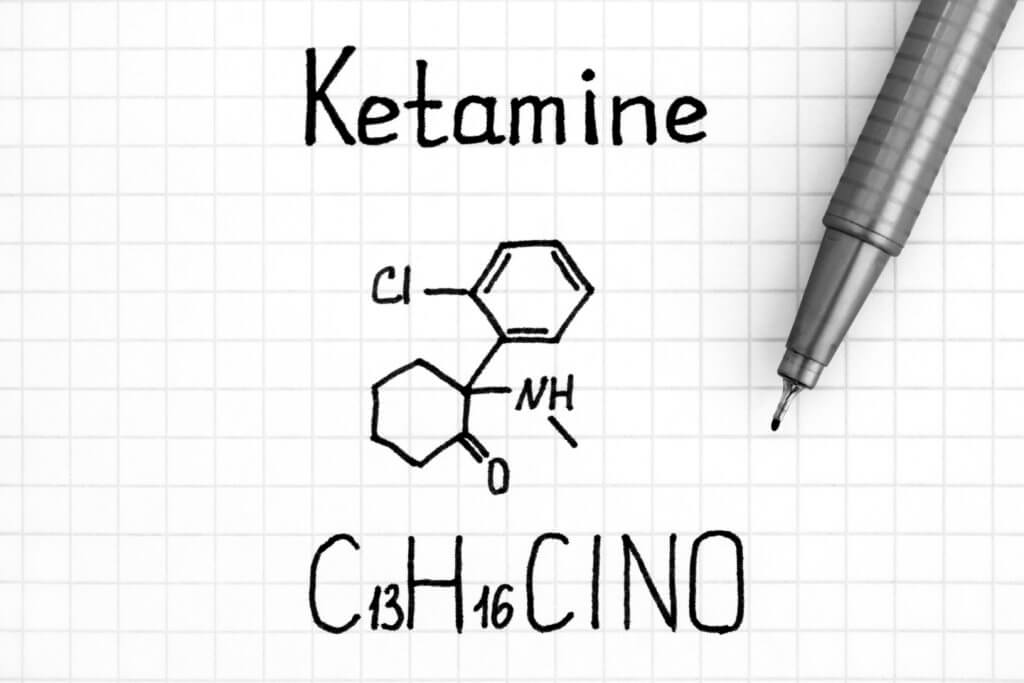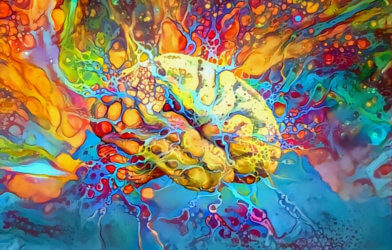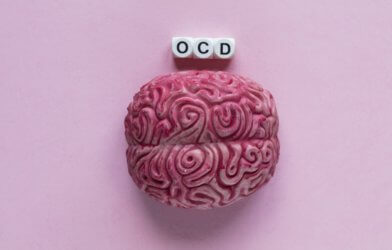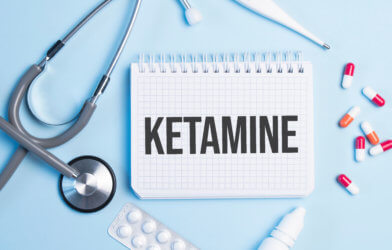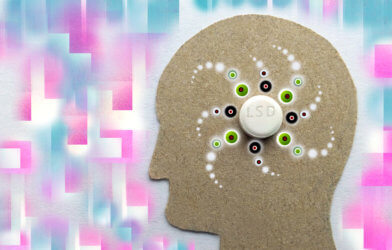Ketamine, long used as an anesthetic, is gaining increasing attention as a tool for managing serious mental health conditions like chronic depression. Now new research reveals yet another way this versatile compound could support mental wellness for more people. Specifically, scientists found that R-ketamine – one of two mirror versions of the drug – uniquely restores brain activity and social functioning in a mouse model of long-term isolation.
The study, published in Molecular Psychiatry, suggests R-ketamine’s ability to reactivate key emotional regulation circuits could make it an effective intervention for social impairments linked to prolonged loneliness. When social animals like mice are isolated for long periods starting at a young age, it can impair their social, cognitive and emotional development in ways that persist even after normal interactions resume. These lifelong deficits mimic aspects of some human psychiatric disorders.
As rates of isolation and associated mood disorders continue rising worldwide, repurposing ketamine represents one promising route to counteract these escalating threats to society’s collective mental resilience.
Only R-Ketamine Boosted Social Mental Health
Researchers at Osaka University in Japan specifically looked at an area called the anterior insular cortex (aIC), which helps regulate emotional reactions. Dysfunction here is linked to conditions like depression and anxiety. The study found that low doses of R-ketamine, but not regular S-ketamine, uniquely reactivated the aIC region in isolated mice. The compound also increased activity in this region when mice were allowed to interact freely with unknown peers.
“These findings highlight the importance of the anterior insular cortex for the positive effects of (R)-ketamine on social impairments, at least in mice,” says Dr. Hitoshi Hashimoto, senior author of the study, in a statement.
Alongside the neuronal boost, formerly antisocial animals got better at tasks requiring social memory and novelty recognition after receiving R-ketamine. This improvement disappeared when scientists deliberately suppressed activity in the same aIC region.
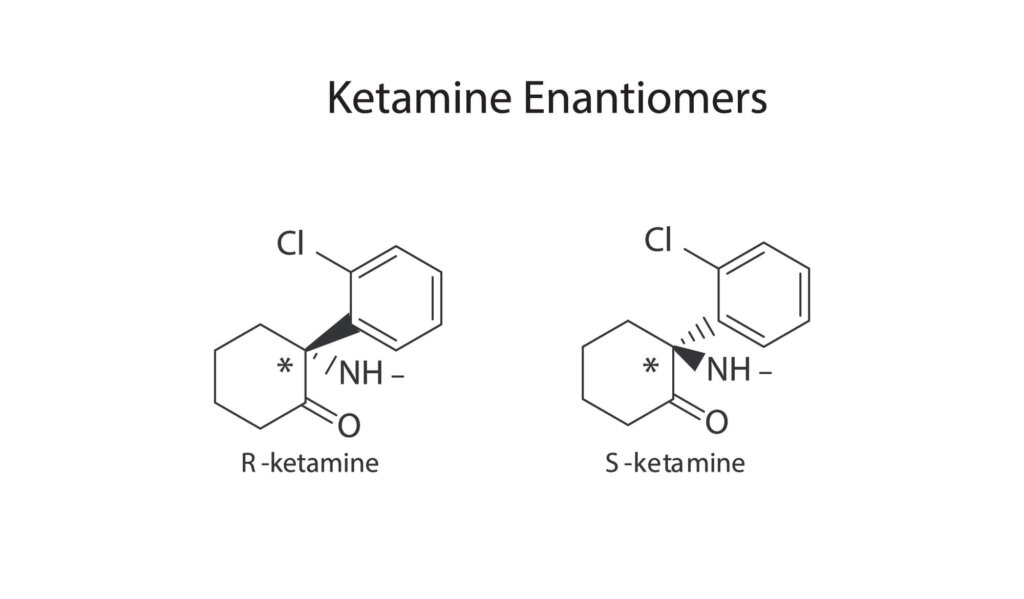
Brain Restoration
Prolonged isolation starting early in life can hinder social, cognitive and emotional development across mammalian species, including humans. Brief childhood separations may cause enduring behavioral issues. Psychiatric disorders also often involve degrees of social withdrawal.
To model this, the researchers isolated young mice for over six weeks – considered chronic isolation. As adults, these animals showed signs of depression and reduced sociability.
The team then gave isolated mice a single dose of R-ketamine. Using specialized imaging techniques, the researchers mapped neuronal activation across the entire brains of treated mice. This allowed an unbiased search for differences between R-ketamine and regular S-ketamine without prior assumptions.
“Notably, we found that chronic social isolation led to decreased neuronal activation in the anterior insular cortex – a brain region that is important for emotional regulation – during social contact,” said lead author Rei Yokoyama.
But R-ketamine uniquely reversed this suppressed brain activity in the aIC. Other regions like the prefrontal cortex were less affected.
Alongside restored neuronal firing, mice given R-ketamine also showed improved sociability. They performed better on tests requiring social memory compared to untreated peers.
When the team deliberately dampened neuronal excitability in the same region, however, R-ketamine’s effects disappeared. This suggests properly functioning aIC circuits are vital for the compound’s benefits.

Different Enantiomers, Different Effects
What accounts for R- and S-ketamine’s divergent effects on the brain? The two molecules are like handedness versions of the same chemical structure. So they bind to some targets identically but interact very differently with others.
Past work also shows R-ketamine generally activates the prefrontal cortex more than its sibling molecule. But this study newly highlights restored aIC activity as a key node mediating its antidepressant properties.
While tempering isolation’s heavy toll, the findings may also translate to improvements in disorders with social difficulties like depression or anxiety. More research is still needed, however.
Nonetheless, “our results indicate that R-ketamine may be better than S-ketamine for improving social cognition,” Hashimoto notes, “and they suggest that this effect is dependent on restoring neuronal activation in the anterior insular cortex.”
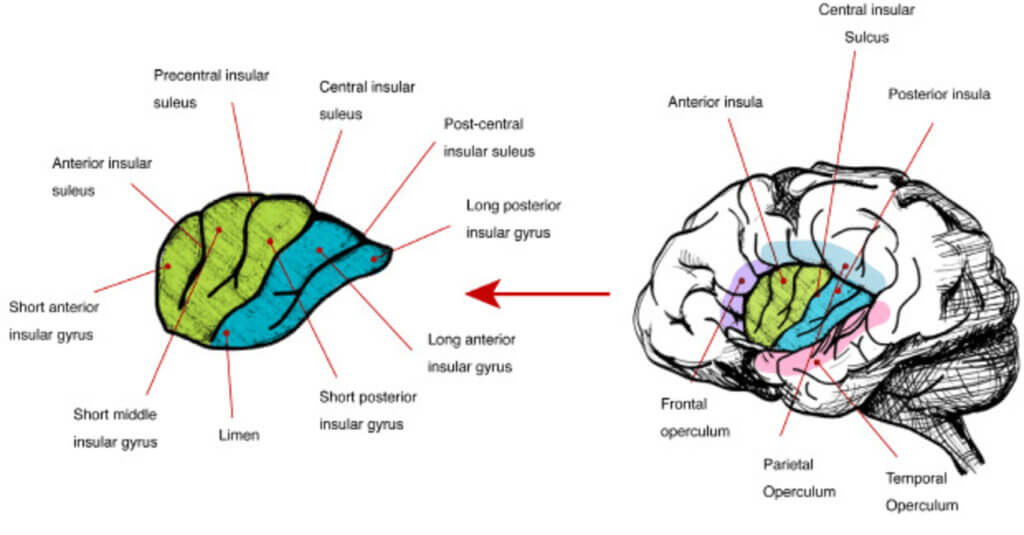
Ketamine Bolsters Brain Resilience
An unfortunate truth is that loneliness and depression rates continue climbing worldwide. If trends hold, nearly one-in-three people will experience isolation-triggered issues at some point, scientists warn.
Having an isolated upbringing or psychiatric illness can both profoundly impact social success and quality of life over the long term. But like muscles, properly activating brain regions through stimulation or drug therapies may help counteract the weakness isolation baked in early on.
Identifying tools to strengthen mental resilience is thus becoming urgent. R-ketamine represents one promising method for counteracting the brain vulnerabilities isolation can instill over time. Understanding these brain-behavior mechanisms is key to developing more targeted treatments going forward.
